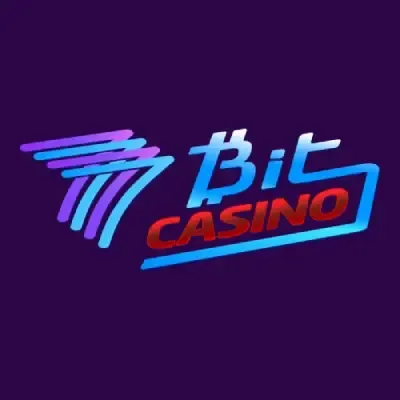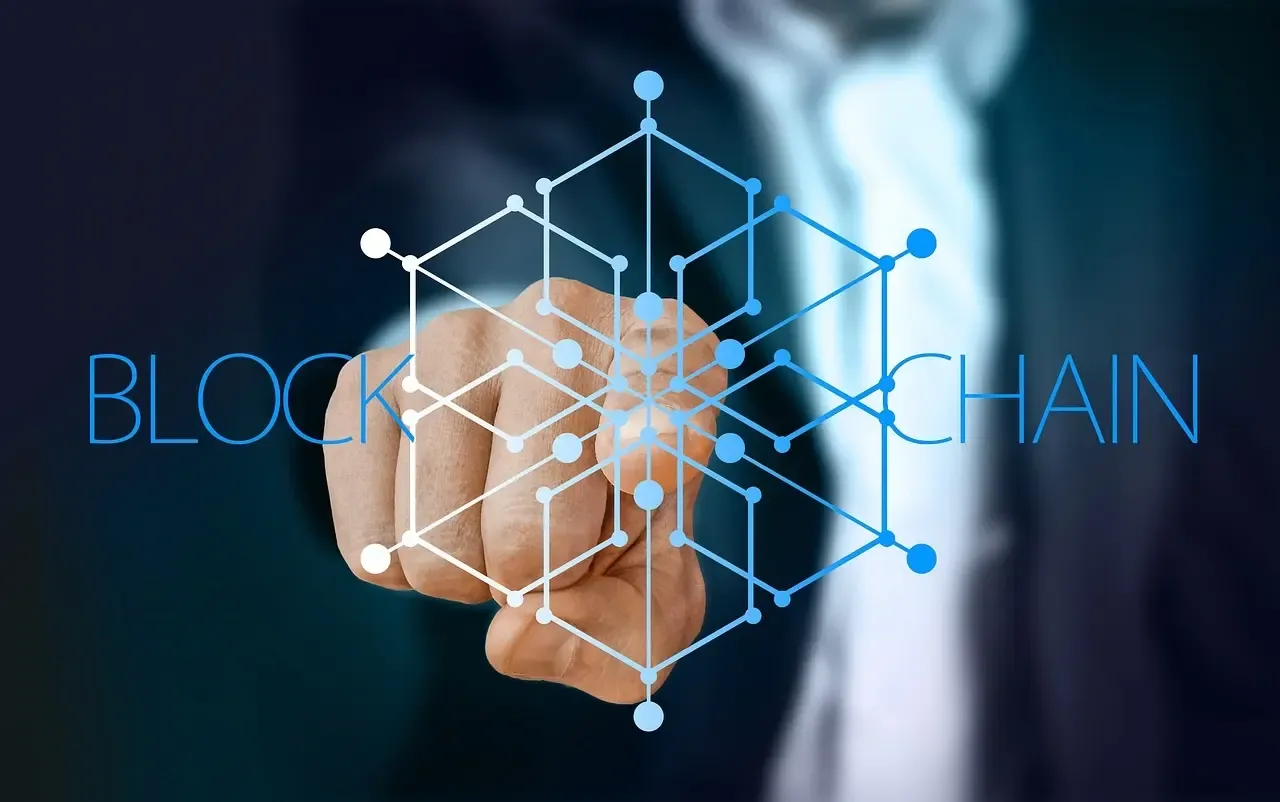Latest Innovation in Blockchain/Crypto Technology Transforming Future
Embracing the future, blockchain and crypto technology introduce groundbreaking innovations like DeFi, NFTs, CBDCs, and AI integration. These advances are revolutionizing finance, asset ownership, and digital interactions—offering unparalleled security, efficiency, and decentralization. Welcome to the digital transformation era!
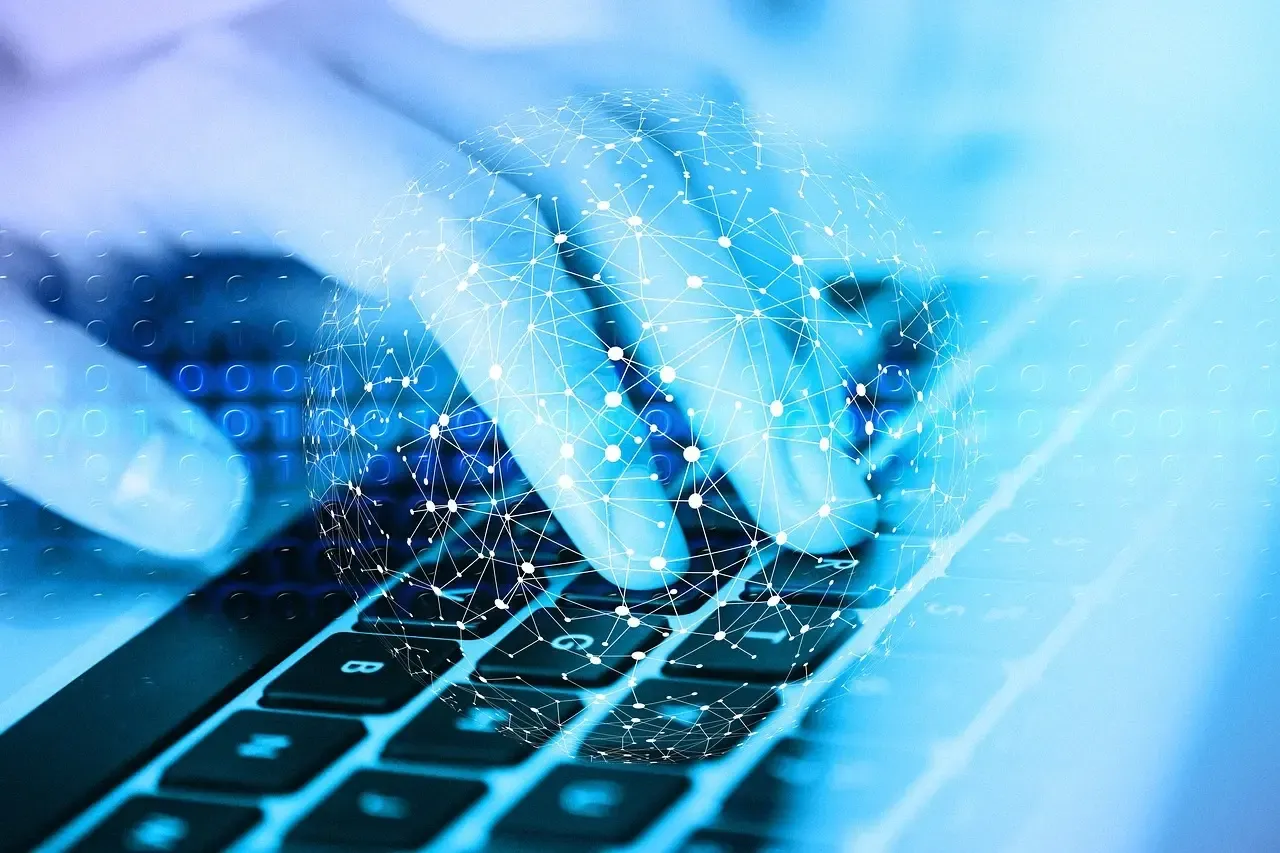
Have you heard the latest crypto news? You would probably answer by “which one” since this industry evolves every second. And with the evolution, many industries like finance, art, and even gambling have implemented this technology with the rise of crypto casinos. Big bulls like BlackRock and Fidelity are playing a big role in taking blockchain technology to the next level. Hence, it is hard for normal people to be updated with the latest innovations in blockchain/crypto technology.
But, don’t worry about it as you have landed on this perfect blog. You will learn about all the key trends in blockchain technology. For example: the transformation of traditional finance(TradFi) by decentralized finance(DeFi), and trends of non-fungible Tokens(NFTs).
So, let's start exploring the latest innovations in blockchain/crypto technology that are transforming our world.
Latest Innovations in Blockchain/crypto Technology
Integration of AI in Blockchain Technology
As you can see AI is in almost every part of the world, so it's not that surprising to see the integration of AI in blockchain technology. Their combination is a game changer as it offers the best of both worlds and almost every industry can benefit from this innovation.
In particular, AI can get accurate and trustworthy data to train its model. On the other hand, blockchain technology can optimize its process to reduce transaction speed, and costs, and prevent possible frauds through AI.
Key Benefits of AI in Blockchain Technology
Enhanced Data Management
You may already know AI is a big-brain guy who can analyze the data available in blockchain networks, identify the steps, and streamline processes. As a result, AI makes it easier to handle complex datasets and enhances the current data management process with better accuracy.
Improvement in Transaction Efficiency
AI feeds on past data to predict what will come. So, in a similar way, the implementation of AI in blockchain can analyze past transaction patterns to optimize overall transaction efficiency and prevent the chance of possible fraud.
Better Smart Contract
With the introduction of AI, the smart contract also gets enhanced as AI can optimize the terms and conditions based on historical data. For instance, in the insurance industry, AI can help to analyze the risk factors based on each customer and modify the terms accordingly like the premium rates.
Central Bank Digital Currencies (CBDCs)
As you can say from the heading, CBDCs are the digital version of traditional currency that is issued and regulated by the central bank of the country. This latest innovation offers the stability and trust of fiat currency with the benefits of digital currencies like security and transparency. So, based on its advantages, CBDCs are gaining popularity worldwide and some countries have already implemented digital currencies.

In particular, the Bahamas implemented the Sand Dollar (CBDC of Bahamas) on October 20, 2020. Likewise, Nigeria is also one of the countries that adopted the digital currency, e-Naira. Taking on the lead of these countries, China, India, and even the European Union have started their pilot project to analyze the possibility of digital currency.
Based on the press release of the Bank of Canada on May 8, 2023, they also have started an initiative on digital currency through the launch of Public consultations on the digital dollar.
Key Benefits of Adopting Central Bank Digital Currencies
Reduced Transaction fees
You must be aware of the transaction fees that normal traditional banks charge to transfer money be it domestic or international. So, mediators for such transactions can be removed with the introduction of CBDCs resulting in the decrease of transaction fees.
Enhanced Transparency
Blockchain technology offers a record of transactions that can not be manipulated as easily as it can be done with traditional finances. As a result, it helps the government with enhanced transparency that can help with tax evasion and money laundering.
Accessibility
With the introduction of CBDCs, people with limited or zero use of banking services can get the benefit of a secure digital payment system. In this way, the unbanked/underbanked population can be a part of the economy without involving with the banking system.
Blockchain-as-a-Service (BaaS)
Implementing new blockchain technology from scratch can be a hectic task for any business trying to leverage the benefits of this technology. As a result, BaaS was introduced which is a cloud-based service model that allows companies and individuals to use block technology and benefit from it.
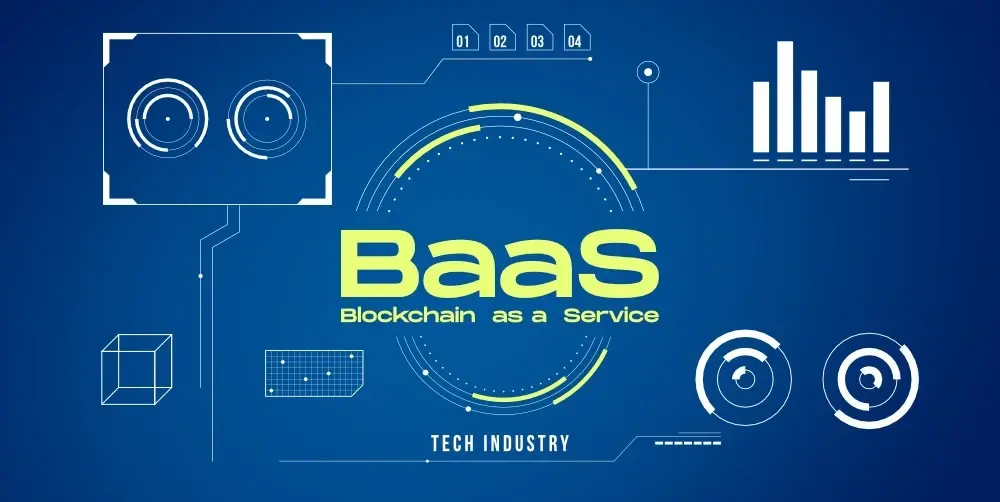
Particularly, BaaS provides necessary components for a business to operate a blockchain network like nodes, consensus mechanisms, and security protocols. Additionally, businesses/individuals with BaaS can create and execute smart contracts without advanced technical skills.
As of now, big companies like IBM, Microsoft, and Amazon have already started providing blockchain services to help businesses implement and operate blockchain networks.
Key Benefit of Blockchain-as-a-Service
Cost Effective
With the use of BaaS, businesses can reduce the cost of implementing and operating their own blockchain by a great margin. So, this can be beneficial for small and medium-level organizations that are trying to leverage the benefit of blockchain technology.
Focus on Core Business
Since the BaaS platform can handle all the operations related to blockchain, companies can solely focus on the core business operations without dealing with the complexities of blockchain technology.
Accessibility
The introduction of BaaS has significantly lowered the bar to adopt blockchain technology for any business/individuals. Now, organizations can access the benefits without actually building their own blockchain network.
Blockchain in IoT
The next great innovation in crypto technology is its integration with the Internet of Things (IoT). This collaboration is revolutionizing how devices communicate, share data, and operate. With the implementation of blockchain, IoT systems can enhance security, streamline operations, and improve data integrity.
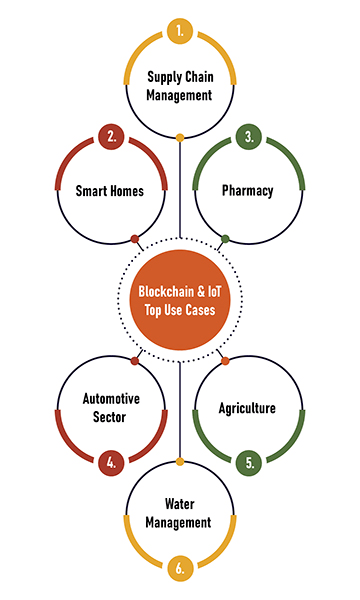
For instance, big companies like IBM and Maersk are using blockchain in supply chain management like tracking shipments in real time. Further, IoT devices used to collect the patient’s data in the healthcare industry are using blockchain to keep it secure to maintain the privacy of the patient. Likewise, this synergy of IoT and blockchain is facilitating various applications in smart cities like waste management, energy distribution, and so on.
Key Benefits of Blockchain in IoT
Decentralization
Blockchain is all about removing a central authority and allowing peer-to-peer transactions. So, its integration with IoT helps devices to communicate with each other without the mediators enhancing the resilience of the system.
Automated Process
Another great advantage of blockchain for IoT is the availability of smart contracts. Now, with its help many operations can be automated. For instance, a smart contract can automatically reorder more supplies whenever the inventory gets below the threshold.
Improved Traceability
In supply chain management, it is crucial to have a proper record of transported goods from the very production to the delivery of the product. And, blockchain is known for its ability to provide a transparent record that can be manipulated. So, blockchain can improve traceability through its secure and transparent record of the journey of products.
Tokenization of Real Assets
The tokenization of real assets is the process of converting physical goods into digital tokens. Further, such tokens can be recorded, traded, and managed on a blockchain network. As a result, this innovation enhances liquidity, and transparency in asset management.
One of the key examples of the tokenization of real assets is its implementation by Nike, one of the biggest shoe companies in the world. Nike uses tokenization to enhance the user experience and authenticity of its footwear through a system introduced as CryptoKicks. Nike links the physical shoes to unique digital tokens on the Ethereum blockchain. This helps the buyer of the shoes to verify ownership.
Key Benefits of Tokenization of Real Assets
Increased Liquidity
As tokenization allows the conversion of any physical assets, it allows the investors to buy and sell smaller fractions of assets like paintings, collectibles, real estate, etc. increasing liquidity. Hence, an increase in liquidity encourages small investors to invest in assets that require big capital otherwise.
Lower Transaction Costs
Traditional trading systems involve mediators like brokers for buying or selling shares resulting in an increase in transactional costs. So, with the introduction of tokenization, mediators are out of the game reducing the transactional fees.
Global Accessibility
Since the blockchain is not affected by borders, investors from different regions can invest in the assets which was quite impossible in the traditional trading system.
Implementation of Crypto in Online Gaming
The implementation of crypto in online gaming is also known as crypto gaming which is another great innovation for the gaming industry. It is changing the traditional gaming experience as it allows the players to own, trade, and monetize in-game assets. To monetize their assets player can use both cryptocurrencies and non-fungible tokens (NFTs).
In crypto gaming, players can have true possession of the in-game assets, unlike in traditional gaming. Further, the players can trade or sell their assets across different platforms or games enhancing the gaming experience which was a dream of many gamers.
Hence, the implementation of blockchain can be found in different genres of gaming like crypto gambling. And, if you are new to the world of crypto-gambling you can read a blog on crypto-gambling and learn everything about it.
For example: a trading card game, Gods Unchained, uses blockchain technology to allow its players to keep their cards as NFTs. So, players can buy, sell, or trade their assets with other items.
Key Benefits of Crypto Gaming
True Ownership of In-game Assets
As discussed earlier, crypto gaming allows players to experience the true ownership of the asset like skins, weapons, or even characters which is not possible with traditional gaming.
Cross-Game Compatibility
With the introduction of crypto gaming, players can trade, sell, or buy in-game assets not just with players with the same platform but also with other crypto gaming platforms.
Revenue Source for Gamers
Crypto gaming allows players to use their in-game assets to convert them into real cash. So, players can use it as a new source of revenue for professional gamers.
Conclusion
Now, that we are at the end of this blog, let me remind you of all the latest innovations in blockchain/crypto technology in short.
We started strong with an exploration of the synergy of AI and block followed by governments introducing Central Bank Digital Currencies (CBDCs). Likewise, we also talked about how beneficial it is to use blockchain-as-a-service (BaaS) along with its integration with the Internet of Things (IoT). Then, we moved to the tokenization of real assets and ended the latest innovation of blockchain technology with cryptogaming.
Blockchain technology is ever-changing and we, as a human, should adapt accordingly to leverage its benefits. And, to do so, you need to be updated with the latest innovations in blockchain/crypto technology. Then, you will not just survive this technologically advanced world but also be ahead in the competition.








